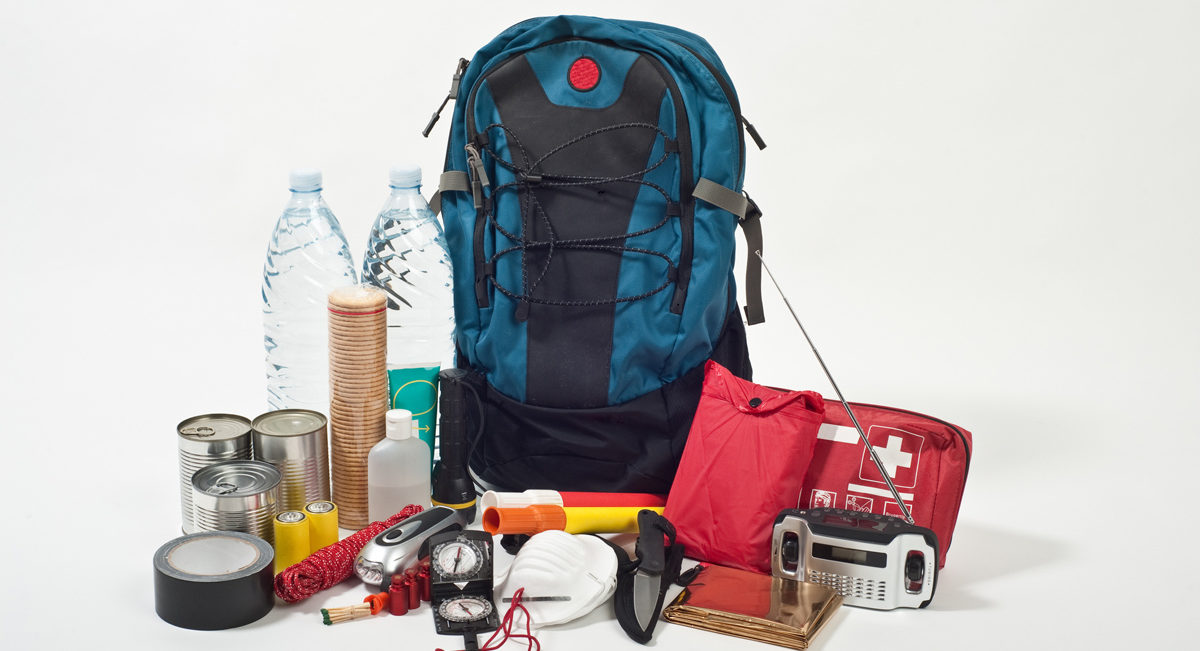
As natural catastrophes continue growing in number and severity, everybody should be prepared for quick evacuation in case of emergency. Even if you don’t live in an area known for natural disasters, you should always be prepared in case you have to make a sudden evacuation.
While there is only so much planning we can do for this type of event, at the very least you should consider packing a “go-bag” emergency kit of supplies that can help keep you safe while finding a place to retreat to.
When you need to leave in a hurry, depending on how much time you have, you may also have time to pack some essentials, like important family documents, but if you have to move fast, a go-bag may be the only thing you have time to grab.
Every member of your family should have a go-bag, which should be easy to carry like a duffle bag or a decent-sized backpack.
Packing a go-bag emergency kit
Here are some things the Department of Homeland Security recommends you put in your family go-bags, at a minimum:
- Water (one gallon per person per day).
- Hand-held water filter (you can get these at outdoors stores).
- Originals of essential documents like passports, birth certificates, wills and driver licenses.
- Cash, because sometimes when power goes out you cannot charge items during natural disasters.
- Non-perishable food.
- First aid kit.
- Hygiene products like soap, deodorant, toothbrushes and toothpaste, hand sanitizer, feminine supplies, contact lens solution, and shampoo.
- Medications.
- Household chlorine bleach and medicine dropper to disinfect water.
- Fire extinguisher.
- Matches in a waterproof container.
- Flashlight.
- Mess kits, paper cups, plates, paper towels and plastic utensils.
- Batteries.
- Whistle.
- Phone chargers and portable external battery chargers.
- Two changes of clothes.
- Diapers, if necessary.
- Pet supplies.
- Portable battery-powered radio with extra batteries, in order to get news updates if cell towers and phone lines go down.
- Paper and pencil.
- Books, games, puzzles or other activities for children.
- Dust mask to help filter contaminated air, and plastic sheeting and duct tape to shelter-in-place.
- Moist towelettes, garbage bags and plastic ties for personal sanitation.
- Basic tools (wrench, plyers, hammer, screwdrivers).
- Manual can-opener for food.
- Local maps.
Important documents
You should also have backups of vital documents. You should store a copy or photo of important documents and information on a flash drive, or better yet, on the cloud, like Dropbox.
Take photos or scans of the following:
- All the rooms in your home, and all your valuables
- Driver’s license
- The deed to your house
- Your will and/or trust
- Proof of insurance
- Medical records
- Passports
- Social security cards
- Birth certificates
- A list of personal contacts, with addresses and phone numbers
- Your kids’ immunization records
- Your pets’ paperwork for vaccinations and medical history.
